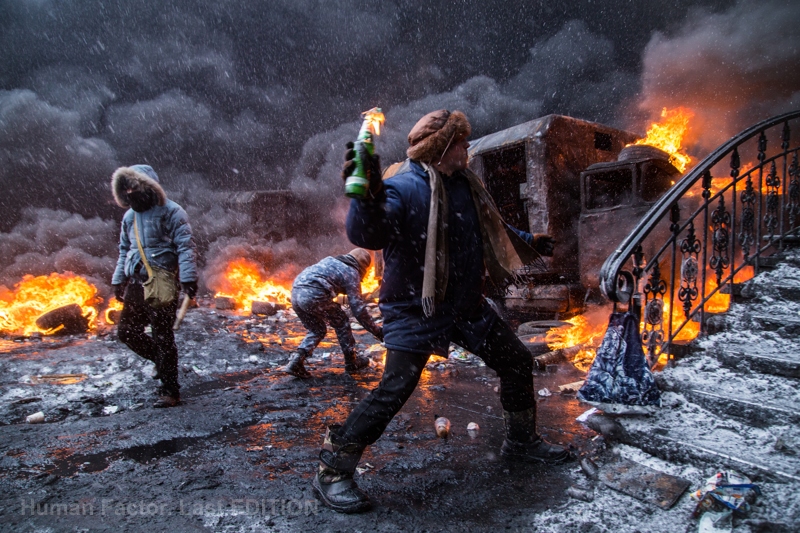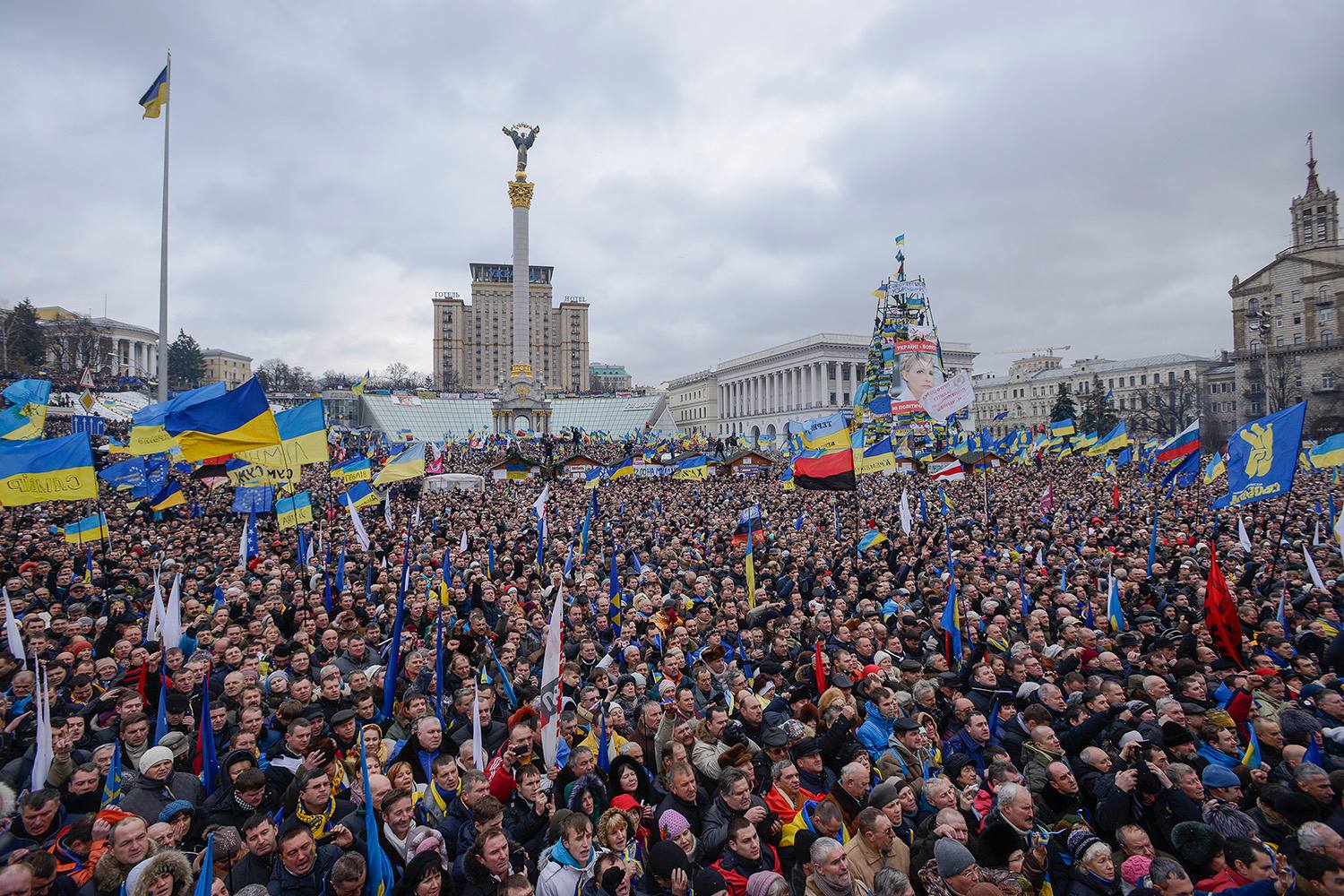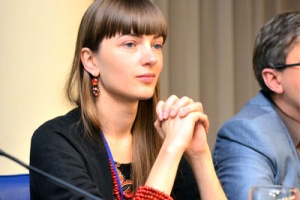It is without question that military violence means enormous harm for the respective population: people get killed, the bodies and souls of the survivors suffer great pain and sorrow.
Therefore one tends to regard military violence, a war, to contradict human dignity.
On the other hand, we have to look at endangerment of human dignity by political suppression, by the suppression of liberty. Let me look at the question at stake from the other side: Is it legitimate to defend political liberty and with it human dignity by military force?
This – as you all know – not a theoretical question. I will deliberate this question in five steps.
1. The Idea of the „Autonomy of the Individual“
There is a very close relationship between human dignity and the freedom of the human being. To be a free human being in a very general sense is part of the dignity of a human being in our understanding. Having said this, I need to clarify the notion of freedom I am talking about and why it is a realization of dignity.
The understanding is more comprehensive than just freedom of choice, meaning the freedom of the shopper in a supermarket to make choices from life’s option: between the choice of many sorts of bread, fruits, T-shirts, etc.
In contrast, the autonomy of the individual is more than the freedom to do what one wants: it carries the meaning of self-determination of the individual in a very profound way. The human being is able to fundamentally relate to values and norms and make a decision about which ones he/she wants to stick to. Talking about the autonomy of the individual then means to talk about very fundamental decisions a human being is called to make: Who am I? Where am I (coming) from? Who do I want to become? What are my gifts? How can I make use of them? Which profession do I want to take? What do I consider to be right or wrong? What do I consider to be valuable?
In answering these fundamental questions a human being takes up the challenge to create one’s own moral identity. In theological terms, we call the gift of our life – beyond the physical existence – to be the gift of the freedom of choice to create oneself to the personality he/she wants to become: this is the true freedom God has given to humankind! This is, of course, an enormous responsibility we are bearing for our life and the danger of failing is real.
Now, humans are constitutively social beings, meaning that we need the other to become ourselves as the baby needs his/her mother and father for developing the personality. As the community is a prerequisite of the individual, we shall now ask for the relevance of the autonomy of the individual for society.
2. The autonomy of the individual in society

Autonomy is relevant to the individual as well as for social life. Humans are finite beings living under limitations: we have limited resources, limited time and our life is in constant danger and has a definite end. The only way to escape this life-threatening danger is a community life with definite rules, where the individual receives some sort of protection.
Our post-enlightenment understanding of the individual being autonomous has to conciliate with the need of the individual to be subject under community rules for the purpose of protection. The main question of enlightenment philosophy was whether this need to subject under law is a violation of the freedom of the individual. Another question was whether the enforcement of law against free will was a violation of freedom.
The answers to these questions lie in the reasoning about how law is generated and who decides about it. Basically, there are two options: law can be generated by autocratic decisions or by a democratic process, in which citizens have to participate in the development of the law under which they live. Both ways do not only exist even today but are key issues in the struggle in Ukraine!
Being a post-Soviet state until the beginning of the 21st century, Ukrainian law was created by autocratic decisions and this was exactly the point that many people were demonstrating against during the Orange Revolution. Freedom in the sense of autonomy of the individual means just the opposite: each citizen has to be an equal member of the Ukrainian society and has to have a say in the democratic process.
Our common history in all European societies can be written as a history of the struggle of liberation of the individual from the absolute rule of the monarch and as the birth of the autonomy of the individual as a citizen.
This is why we western Europeans felt so much sympathy with the Maidan demonstrators and had welcomed the Ukraine society now being really part of the European family. And on the other hand, this exactly explains why the Russian autocrats were so highly alerted with this option of Ukraine now looking west.
Democratic societies in search of common rules need to solve two problems prior to generating law. First, they need to develop a consensual procedure of developing these rules: it is important, as not everybody will agree with the rules resulting from the procedure. Second, limits within which rules can be developed have to be defined, as not every rule can be called a law: as St. Augustine remarked, even robber gangs have rules, but we would not call these rules law. Law needs to be oriented towards justice to deserve the title of law: the Latin „ius est de iustitia“ clearly points out this connection.
The value basis of any law that governs a society does not simply exist but needs to be defined. Values have two sources. One is tradition, i.e. the experience preceding generations accumulated in their struggle for a society oriented to the needs of their members.
The more recent history of European and American societies struggling for values has brought up a catalog of human rights. This catalog results from the fight for the freedom of the individual: the experience of former generations of the limits that law has to respect to truly be called law. Magna Charta in the early 13th century in England which resulted from the struggle for security of law against the despotism of the English King John was the beginning. Later in the 18th century during the French and American Revolutions, political participation was at stake; at the beginning of the 20th century, women were striking for their right to vote, later – Black Americans against racism; nowadays handicapped persons for respect and equal rights.
Basic human rights find their legitimation in the condition of the human being: this is first of all the right to life, food, and shelter. In our condition as social beings the rights to be part of a society and participate in this society are founded. In our condition as rational beings, the right to think and speak out freely and to communicate are founded; these are the basis for religious freedom, freedom of conscience, freedom of speech and the press. Again: as they are all rooted in the condition of the human being, from the point of view of a Christian theology: they are based in the creation by God.
3. Concept of the autonomy of the individual as a political challenge
As described above, the concept of autonomy is a danger for autocracies, like the current Russian or Chinese government. If we sum up what has been described above, it becomes clear that the Ukrainian people at the Maidan stood up for a revolution in public affairs: they were striving for an organization of public affairs with the autonomy of the individual at its core and the respect for basic human rights.
In the Ukrainian context, the quest for political participation, free vote, freedom of opinion and expression, freedom of the press, control over the authorities and transparency of public expenses by independent control to avoid corruption is a political program to deprive the ruling oligarchs from power and to gain control over the security forces. In other words, the rule of the people, and this is the meaning of the Greek notion demo-cracy, is a danger to autocrats: to those who don’t want to share power and public revenues and who in consequence will fight against such an understanding of politics.The uprising of mainly young people in Kyiv against authoritarian rule and their quest for dignity was nothing else than an expression of the autonomy of the individual.
So the core of the Ukrainian conflict, of the uprising of mainly young people in Kyiv against authoritarian rule and their quest for dignity was nothing else than an expression of the autonomy of the individual. The Ukrainian people, dominated by a small ruling elite, stood up to become citizens claiming their rights. The Ukrainian people converted themselves from a heteronomous object of politics into the self-determining subject of Ukrainian politics and this way started a new chapter in Ukrainian political history.
It goes without saying that such a political revolution in Ukraine, if it is successful, becomes an imminent danger for the current political elite in Russia, as it would ignite the suppressed Russian opposition showing that resistance against the autocracy is possible and self-determination an option with future. This was and is a danger for those few autocrats still remaining in power. It can be no wonder that those in power in Moscow interfered in this uprising. Ukraine with a democratic parliamentary system based on the rule of law would spread the virus of democracy and could ignite an uprising against the autocracy in the Kremlin as well as in Belarus.
Taking this into consideration,
A democratic system is based on the acceptance of its citizens as far and as long as their respective rights are respected; if not, democracy comes to an end very quickly. In contrast, an autocratic system is not based on the acceptance of its citizens but on force. As people are usually not freely devoted to their autocrat, internal acceptance often is created by directing the attention to an external enemy trying to rally the people behind the leader and flag.
Ukrainian society was split over the issue of the described political revolution. Many Ukrainians not only in eastern Ukraine positioned themselves in defense of the traditional Russian political and cultural system they were used to. For them, the Russian world ideology offered an alternative interpretation of this political struggle.
The Russian world embraces different religiously-based Great Russian ideologies serving as important legitimation for a reconstruction of the – metaphysically comprehended – Great Russian empire. Great Russian ideologies and dreams of a Great Russian empire implicitly deny the Ukrainian nation and sovereign state the right of existence. Different narratives of Ukrainian history are told depending on political positions in this struggle. For example, the famous baptism of Prince Volodymyr in 988 in the Crimean peninsula, which led to the baptism of the medieval kingdom of Kyivan Rus – is used to legitimize Russia’s annexation of the Crimea in 2014.
4. The essence of the war over Ukraine

The political struggle and war in and over Ukraine was both: first, a struggle of the social and political direction of this post-Soviet society, and, second, a geostrategic struggle between Russia and the West. These two struggles are intertwined and enforce each other.
The inner Ukrainian conflict about individual autonomy and political self-determination divides this society. It includes the fight against the rule of the oligarchs as well as the struggle for political and economic participation. This conflict touches the interests and values of the West – EU and USA – as well as Russia’s. Therefore both, Russia and the West, supported opposing sides within Ukraine: the EU and USA were in support of the Maidan demonstrators, Russia backed the Yanukovych government.
Political conflicts are usually solved by compromises. But is it possible to compromise over the fight for autonomy and political self-determination? I hold the position that it is not, which makes the Ukrainian struggle so severe and dangerous at the same time. At the Maidan a fundamentally different understanding not only of political organization was at stake, but of human dignity.
The Maidan demonstrators opted for a society that is composed around the idea of freedom, or more precisely the autonomy of the individual: the individual that is free in the sense that he/she has to take over complete responsibility of his/her life in a very profound way.
This reduces him or her to a „drop in a sea“, where the single human being bears no rights as such except as being part of the mass. This understanding of the human being is contrasted by the idea of the „autonomy of the individual“ and has immediate political consequences.
5. The geopolitical dimension of the war over Ukraine
The struggle for Ukraine has another dimension that is immediately related to the aspiration for autonomy. EU Citizens were thrilled by the Maidan demonstrations, seeing them as a democratic uprising and as such as the continuation of the liberation process of Eastern European nations such as Poland, Hungary, Slovakia, Slovenia, Croatia and the Baltic states after 1989.
While cheering the Maidan demonstrators, most European misunderstood them. People and governments in the EU mainly interpreted the democratic uprising in Ukraine to be simultaneously a wish for EU membership; another extension of the EU to the East was to be the consequence of the revolution in Ukraine. For quite a number of Europeans a possible membership in the EU meant that sooner or later Ukraine would join the European security structure as well. Did the Maidan demonstrators ever think of becoming a member of NATO? Most likely not, but for most Europeans this was to be the logical consequence as it happened in Poland, Hungary, and the Baltic states.
The situation in Ukraine interpreted on the basis of the 1990 „Charter of Paris for a new Europe” even more. At the end of the Cold War, the European states, USA, Canada, and Russia had signed this document which is brimming with the democratic optimism of the early 1990s. Peace would spread through democracy, the rule of law, and sovereign equality of states. Democratic values were understood to be a prerequisite for a peaceful order in Europe.
Implicitly, this quest included the democratization of Russia, which one, with some optimism, could expect under Yeltsin. However, most Europeans neglected the political change towards autocracy under Putin and continued to interpret the Ukrainian revolution on the basis of the Charter of Paris from 1990: the Maidan revolution seemed to demonstrate that democracy and peace were spreading and political change in Russia were only a question of time.
While I do hope for political change towards democracy in Russia myself, it is a question of political prudence to be aware that the current Russian leadership under Putin could not imagine the Russian society changing into a democracy and will interpret any intention of democratic change as threatening its own political position.
Autocrats naturally fear the democratic challenge. While this is not surprising, one has to be astonished that neither the EU nor US politicians took this into consideration; obviously there was little to no understanding that any support of the democratic movement in Kyiv led to ringing alarm bells in the Kremlin.The autocrat in the Kremlin could not understand Western support other than as aggression against his rule – and reacted this way.
This is no legitimation of Russia’s reaction to the Maidan revolution and change of government in Kyiv, but it was foreseeable, and a failure of EU and US politicians not to have taken this into consideration and planned ahead!
For the Ukrainian people, autonomy and the right of political self-determination gave and gives the right to stand up and defend this way of life against any threat. It is without question a matter of prudence to try to solve this struggle with nonviolent, political, and diplomatic means if at all possible. Military resistance against violent aggression means can be unavoidable, but always only as a last resort.
A book with the full texts of the lectures of the conference is being prepared.

Read also:
- 32 exclusive photos to remember the Euromaidan revolution
- EUROMAIDAN: rebirth of a nation
- My Maidan. A tribute to the revolution that changed us forever
- Euromaidan participants remember turning point of protests two years after
- Faces of Maidan
- Meet the Hard-Working Ukrainians Helping to Keep Euromaidan Alive
- Physicians at Maidan
- Eleven films about Euromaidan you can watch online






